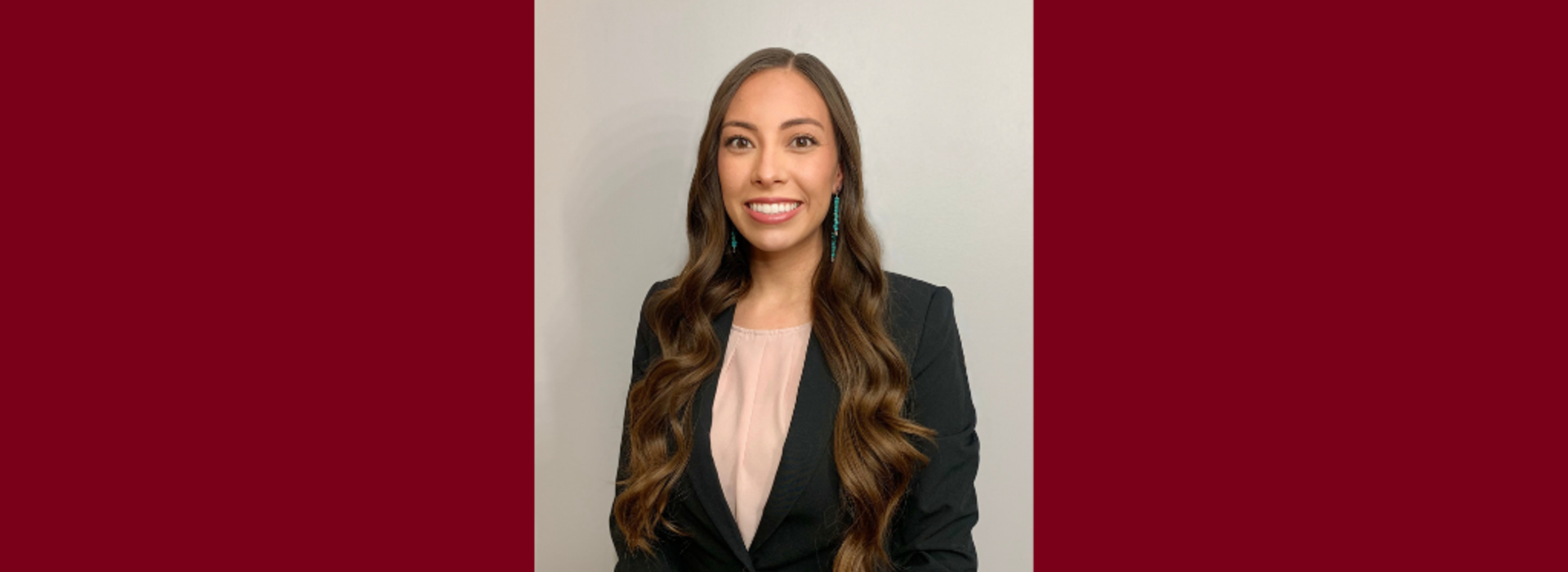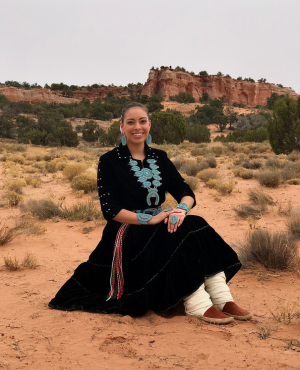
Fusing Heritage and Medicine for Pediatric Care
Emily Walck’s journey into medicine embodies the fusion of cultural heritage, personal journey, and a drive to make a difference. As a first-generation college graduate from Cortez, Colorado, Walck’s upbringing in a multicultural environment shaped her path.
“Being around my Native American culture and background greatly influenced my life. It's a big part of constructing who I am as a person and my whole identity,” she says.

Growing up immersed in her Navajo heritage, Walck was influenced by her family's traditions, language, and values. Despite being exposed to healthcare through numerous doctor visits for her grandparents, she initially didn't see herself pursuing medicine. However, her love for biology and science and her family’s support drove her to pursue a degree at Stanford University.
During her undergraduate years, Walck’s interest in medicine began to take shape.
"As part of my undergrad, I pursued a human biology degree, which required an internship. I stumbled upon a clinical research assistant position with Dr. Horst, a radiation oncologist specializing in breast cancer. Given my grandmother's breast cancer survival, I was intrigued. This was my first introduction to actually doing medicine beyond some of the tangential things I learned in undergrad," she recalls.
Her time as a clinical research assistant at Stanford's Cancer Center transformed her perspective on healthcare, especially after her experiences at under-resourced Indian Health Service facilities. This fueled her determination to use her education to enhance healthcare for underserved communities, including her own.
“I had a lot of support, especially from the Native community. It was really cool to be around peers pursuing complex engineering, medicine, and computer science degrees. We're all on a journey to bring this education back to our communities one day."
Transition from Undergraduate Studies to University of Minnesota Medical School
Throughout her journey, Walck grappled with cultural taboos surrounding illness and death within her Navajo heritage. However, her family's tradition of healing, rooted in herbal medicine and spirituality, instilled in her an appreciation for holistic approaches to health and well-being.
“When I ended up getting into medical school, it was pretty much a no-brainer for me to come to the University of Minnesota,” Walck says. "I spent my first two years in Duluth, which aligned perfectly with my mission in rural and Native health. Then, transitioning to the Twin Cities, with its renowned medical center and legacy in bone marrow transplant, it was an obvious choice that met my personal and professional goals."
Walck was drawn to pediatrics by her desire to advocate for children and their families. Her passion was fueled by her experiences in stem cell research and clinical rotations. Following graduation, she was a member of the Czechowicz lab, working on novel antibody-based conditioning and clinically relevant care for children with rare bone marrow failure disorders. Further, when she joined the U of M Medical School, she was able to continue within this narrow scope of stem cell biology and research. Walck spent the summer between MS1 and MS2 conducting research in Dean Jakub Tolar's laboratory as an A-PReP Scholar through the Clinical and Translational Science Institute.
This led to her path in the Education in Pediatrics Across the Continuum (EPAC) program, which provided her with mentorship and hands-on clinical experience focused on pediatrics. “I have had such a great experience. I think that the format of the independent learning environment has worked so well for me,” she adds.
EPAC allowed her to work closely with attending physicians, gaining insights into patient care and developing her skills as a future pediatrician. Through EPAC’s competency based medical education, Walck will transition from medical school into the Pediatric Residency Program here at the U of M this fall.
"I've found immense value in strong mentorship, especially through EPAC. I expected to find mentors, but I've been overwhelmed by the support and guidance from an entire team,” she elaborates. “They not only support my EPAC journey, but each one of them wants to get to know me and support me in the best way possible."
Preparing for the future, Walck envisions herself as a pediatric hematologist, oncologist, and stem cell transplanter, aligning her medical practice with her cultural heritage's emphasis on healing from within. Finding success in medicine and research has come at the expense of being away from her home and community, as this is the reality for many Native Americans who pursue higher education, especially medical degrees.
"Looking ahead at how medicine will be practiced in the next few decades, I'm very passionate about mentoring Native American students. It's crucial they understand that we can have seats at the table, and we can be advocates, and our perspective is just as important as everyone else's. That's where I see my career going in the future—balancing my values with the support of my community as I strive to shape the way we look at cutting-edge medicine in the next couple of decades.”